The Department of Romanian Language and Literature
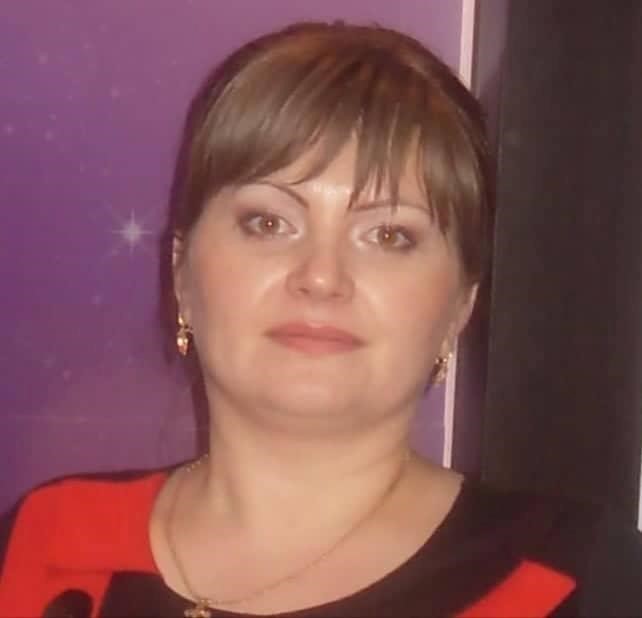
The Department of Romanian Language and Literature is one of the first departments of the Faculty of Philology, which has been active since October 1930. In the period of 1932-1940, the department provided training at the specialties of Moldovan Language and Literature, Moldovan Language and Literature and History, Moldovan Language in Russian School. Over the years there have been many changes in its structure and vision. After 1940, the contingent of teachers, together with the students who were studying at the specialty of Moldovan Language and Literature, were transferred to the newly formed institution – the Pedagogical Institute of Chisinau (currently – “Ion Creangă” State Pedagogical University). The Department of Romanian Philology is reopened within the Faculty of Pedagogy, and over 10 years, in 1994, it is transferred to the structure of the Faculty of Philology that resumed the training of the specialists of Romanian language and literature.
Among the first personalities who started their scientific activity and contributed to the development of the Department/Faculty, were the writers L. Cornianu, N. Cabac, I. Ciobanu, N. Marcov, P. Darienco, P. Cruceniuc, M. Oprea, S. Mospan.
Between 1994-2009, an important aid in the training process of the philologist specialists was granted to the scholars A. Burlacu, doctor habilitate, university professor; T. Melnic, doctor habilitate, university professor; N. Băieşu, doctor habilitate, university professor; V. Zagaevschi, doctor, associate professor, S. Spânu, doctor, associate professor; Gr. Canţîr, doctor, associate professor ; V. Fonari, doctor, associate professor. From the initiative of the Chair of Romanian Language and Literature in March 2002, the title of Doctor Honoris Causa was conferred to the professor, Dr. V. Crăciun, the president of the Cultural League for the Unity of Romanians from Everywhere. In March, 2005, the title of Doctor Honoris Causa was awarded to academician Mihai Cimpoi, former president of the Writers’ Union of the Republic of Moldova.
Currently, the department provides training for the specializations:
Cycle I
- Romanian Language and Literature and English Language
- Romanian Language and Literature and French Language
- Romanian Language and Literature
- Pedagogy in Primary Education and Preschool Pedagogy
- Pedagogy in Primary Education and English Language
- Pedagogy in Primary Education and Psycho-Pedagogy
Cycle II
- Contemporary Romanian Language and Literature and Educational Technology
The masterful principle of the teaching staff of the Department is the work of training highly qualified specialists for the national education in the Republic of Moldova. At the same time, the good knowledge of the professional styles and languages, of the Romanian culture, offers the graduates wide possibilities of employment in different institutions – in middle schools, high schools and colleges, radio and TV, publishing houses of different newspapers and magazines.

Ionaș Anatol, PhD, Associate Professor
E-mail: anatolie.ionas@gmail.com
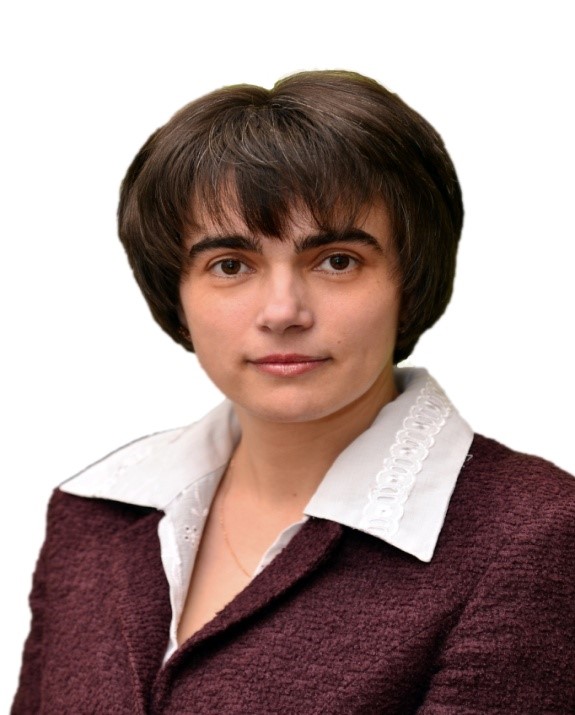
Ursu-Bunescu Lucia, PhD, Associate Professor
E-mail: bunursul@mail.ru
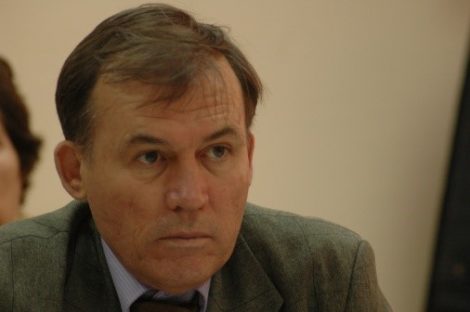
Chiperi Gheorghe, PhD, Associate Professor
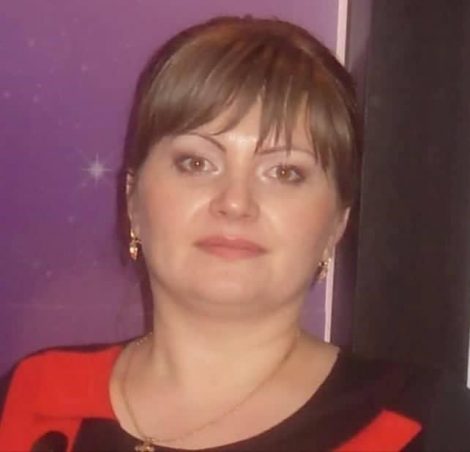
Străjescu Natalia, PhD, Associate Professor
E-mail: strajescu.natalia@mail.ru

Stratan Natalia, PhD, Associate Professor
E-mail: natstrat@mail.ru
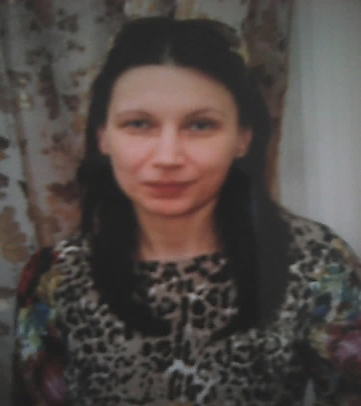
Lebediuc Adela, university assistant
E-mail: alebediuc@mail.ru
Currently, the members of the Department of Romanian Language and Literature ensure the acquisition of the following disciplines:
- Romanian folklore
- Children’s literature
- History of the Romanian literature (medieval, modern, inter-war, post-war, contemporary)
- Postmodernism of the Romanian / Bessarabian literature
- Literature theory / introduction to literature theory
- Analysis of the literary text
- History of literary criticism / Aesthetics of the literary genre
- Romanian contemporary language (phonetics, lexicology, morphology, syntax)
- Latin Language
- Introduction to romance
- History of the Romanian literary language
- Theory and methodology of the Romanian philology
- General linguistics / introduction to linguistics
- Didactics of the Romanian language and literature
- Linguistic semiotics / introduction to semiotics
- Dynamics of the contemporary Romanian language
- Text linguistics
The Department of Romanian Language and Literature has a laboratory set up, equipped with didactic / illustrative materials, equipment and technical means necessary for carrying out the study process and extracurricular activities.
The activity of the Romanian Language and Literature Department focuses on three basic modules: didactic, scientific and extracurricular (extracurricular) modules. The didactic module is paramount, it is carried out both at the Bachelor’s level and at the Second Cycle-Master. The didactic preoccupations of the professors of the department are:
- elaboration of didactic projects, of the respective pedagogical and technical support;
- integration of new information strategies and technologies in the teaching/learning process;
- editing teaching materials;
- academic coordination of the practical internship, of the bachelor’s and master’s theses;
- managerial planning in accordance with quality assurance;
- students’ integration in study programs with international cooperation, etc.
Lectures, seminars and individual work use student-centered methods that enhance learning awareness. Teaching-learning-assessment strategies are based on: development of critical thinking, problematization, exploration/investigation, interactivity and information technologies, case studies, projects, e-learning, etc.
An important way of insertion in the professional field is also the students’ training in the research activity. One of the important objectives of the Department is to stimulate and achieve the students’ scientific work that goes beyond the Students’ raditional conferences (held annually), but also provides their involvement in the process of large-scale events, such as: participation in various research projects, academic mobility (in universities in the country or abroad), publishing scientific creation in various specialized journals, etc. As a result of their effective training, students receive scholarships within the Erasmus Mundus Corporation project at Michel de Montaigne University, Bordeaux, France, the University of Deusto, Bil-Bao, Spain, Algarve University, Faro, Portugal.
The didactic activity proposes a theoretical approach of communication, a way of expression in front of the audience and, developing the spirit of analysis and synthesis, supporting an argument, developing relational potential and understanding human interactions.
The Department of Romanian Language and Literature also carries out extracurricular activities, having a mobilizing impact on students. The students’ creative-artistic potential is valorized, as they have the possibility to manifest their talent through song, theater or poetry (musical-artistic performances, literary circles, circles, etc.). The students actively participate in the numerous meetings, organized by/at the department, with writers and people of culture from the Republic and from other countries: Mihai Cimpoi, Ion Ciocanu, Nicolae Dabija, Vlad Ciubucciu, Valeriu Matei, Renata Verejanu, Stelian Dumistrăcel (university professor, “Alexandru Philippide” Institute of Romanian Philology of Iaşi Romanian Academy), E. Uricaru (novelist and essayist, Romania) and others.
Currently, the teachers prove by facts that the Department of Romanian Language and Literature has become a real training and research center, and its teachers are skilled pedagogues and formidable researchers, who are meant to teach students and masters to generate ideas, to write articles, scientific papers, doctoral theses, textbooks and monographs.
